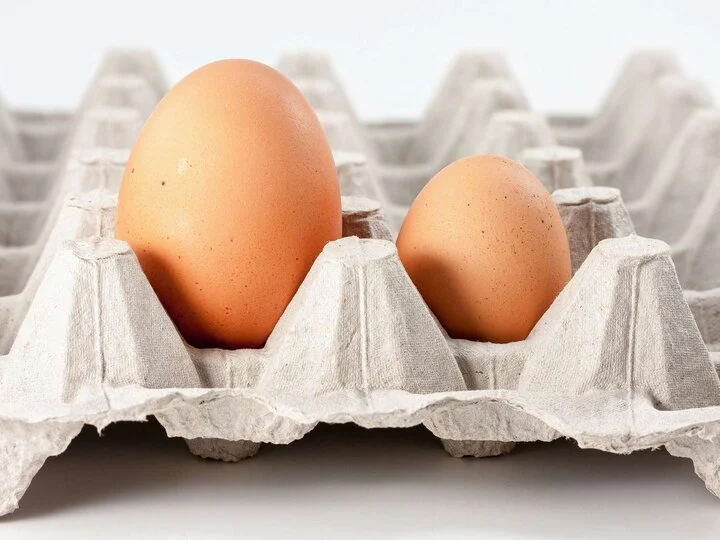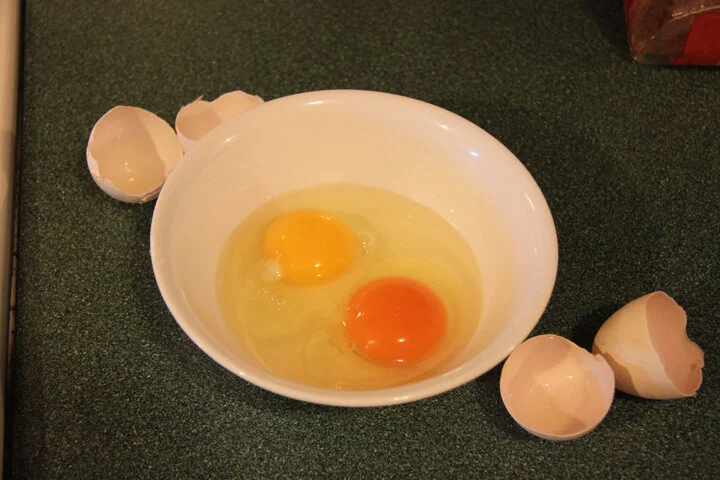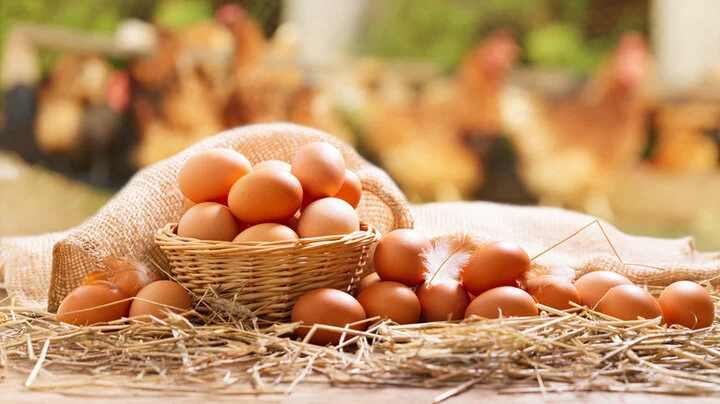Eggs are an important source of nutrition and are regularly present in meals. In addition to direct cooking methods (boiling, frying, steaming…), eggs are also used as ingredients in many types of cakes, sauces, and other dishes.
The sizes of chicken eggs on the market are quite diverse. Many housewives often try to choose small eggs because they believe that small eggs are tastier and more nutritious. Others are unsure whether to choose large or small eggs. Does size affect the nutritional content of eggs?
Should you choose large or small eggs when buying?
When buying eggs at the market or supermarket, we will see that they come in different colors and sizes. According to Sohu, regardless of whether the eggs are light or dark, large or small, the basic nutritional content remains the same. In other words, the size of the egg does not affect its quality. As long as they are eggs from the same breed of chicken, there is no difference between large and small eggs if the same feeding regime is applied. Therefore, when choosing eggs, you do not need to be overly concerned about the size but should focus on their freshness.

Should you choose large or small eggs when buying? Size does not affect the quality of the eggs, you should pay more attention to their freshness. (Photo: Allrecipes)
Some people believe that large eggs contain more protein, while others think the opposite, believing that small eggs are from naturally raised chickens and are more nutritious. However, regardless of the size, the protein content of eggs remains relatively stable. Nutritional composition tests have shown that the difference in protein content between large and small eggs is very small, so it is not something to worry about.
The findings from the US Department of Agriculture also show that there is not much difference in the nutritional value of large and small eggs, whether they are from commercial or free-range chickens. They only differ slightly in taste, for example, free-range eggs are more fragrant, and the yolk ratio is higher in commercial eggs.

Free-range and commercial chickens have different tastes, but the nutritional content does not differ significantly. (Photo: Delishably)
The quality of eggs is related to the farming environment, diet, and freshness. A good farming environment and a balanced diet that provides chickens with the necessary nutrients will result in more nutritious eggs. Feeding chickens a diet that is balanced in protein, vitamins, and minerals is the key to ensuring the quality of the eggs. If the chickens are well-fed, the eggs they lay, regardless of size, will have equivalent nutritional value.
Tips for choosing delicious eggs
We can assess the freshness of eggs by observing their exterior appearance. Fresh eggs have smooth shells without cracks, stains, or black spots. In addition, for packaged eggs, pay attention to whether the packaging is intact to avoid buying spoiled eggs.

When buying eggs, you don’t need to focus too much on the size of the eggs but rather on their freshness and quality. (Photo: Tasting Table)
You can also check the freshness of eggs by shaking them. If you hear the sound of movement, the egg may be old.
In addition, pay attention to the smell. Fresh eggs have no smell, while spoiled eggs may have a rotten smell.
Touch the eggshell, if it is slightly rough, it is fresh, but if the shell is completely smooth, it has been stored for a long time. Chicken eggs have small pores to ensure airflow, and if they are stored for too long, these pores clog up and give a smooth and shiny feeling, losing their roughness.
According to VTC News





































